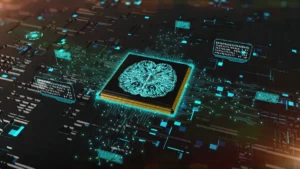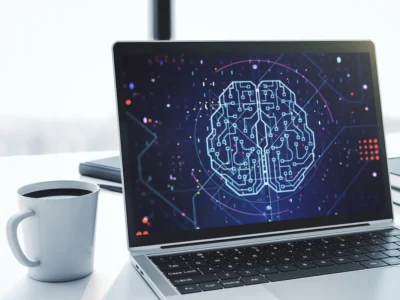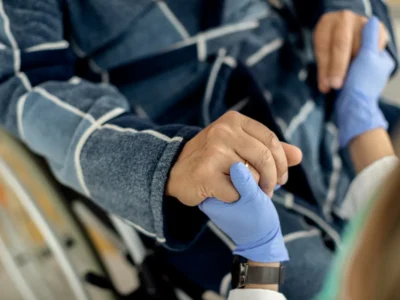On the occasion of Brain Awareness Week 2025, in this article we explore the impact of artificial intelligence (AI) in neuropsychology and how this technology is shaping the future of cognitive rehabilitation.
Introduction
Neuropsychology has undergone constant evolution in recent decades, integrating new technologies to improve care for patients with cognitive disorders. Artificial intelligence (AI) is revolutionizing the field of cognitive rehabilitation by offering advanced tools for assessment, intervention and monitoring of therapeutic progress.
The importance of cognitive rehabilitation in neuropsychology
The cognitive rehabilitation is a fundamental pillar in the treatment of patients with cognitive deficits resulting from neurological diseases, traumatic brain injuries or neurodegenerative disorders. The goal of this discipline is to improve or compensate for altered cognitive functions, allowing patients to regain their autonomy and quality of life.
Neuropsychology not only seeks to restore cognitive functions, but also plays a crucial role in improving patients’ personal relationships. Cognitive decline can affect communication, empathy and the ability to interpret others’ emotions, negatively impacting social interactions. Through cognitive rehabilitation, essential skills are strengthened to maintain healthy and satisfying relationships.

Subscribe
to our
Newsletter
The role of artificial intelligence in cognitive rehabilitation
AI-assisted neuropsychological assessment
One of the main contributions of artificial intelligence (AI) in neuropsychology is the improvement in patient assessment. AI-based tools can analyze large volumes of data and detect patterns in cognitive performance that might go unnoticed in a traditional assessment.
The algorithms of machine learning allow:
- Personalize neuropsychological tests according to the patient’s characteristics.
- Identify early signs of cognitive decline.
- Analyze the patient’s progression with greater precision.
Therapeutic intervention with AI
Cognitive rehabilitation programs based on artificial intelligence have proven to be effective in improving functions such as memory, attention and problem-solving.
These tools offer:
- Adaptive exercises: AI adjusts the difficulty of exercises based on the patient’s performance, optimizing their learning.
- Gamification: Incorporating playful elements enhances motivation and adherence to therapy.
- Virtual assistants: Chatbots and voice recognition systems assist with cognitive stimulation and provide emotional support to patients.
Monitoring progress and personalization of treatment with AI
Artificial intelligence facilitates continuous monitoring of the patient through the analysis of data obtained in real time.
This allows:
- Detect changes in cognitive performance and adjust treatment dynamically.
- Generate detailed reports that help neuropsychologists in clinical decision-making.
- Predict potential relapses or the need for therapeutic adjustments before they manifest.
Benefits of AI in the therapist-patient relationship
The artificial intelligence (AI) does not replace the work of the neuropsychologist, but complements it.
Its application in cognitive rehabilitation allows professionals:
- Optimize consultation time, by having precise and objective data about the patient’s condition.
- Improve the therapist-patient relationship, by focusing on emotional support and the design of personalized strategies.
- Increase accessibility to therapy, allowing patients with mobility difficulties to receive remote care.
Challenges and ethical considerations in the use of AI in neuropsychology
Despite its benefits, the integration of AI into cognitive rehabilitation poses challenges that must be addressed:
- Data privacy and security: The collection and storage of neuropsychological information must comply with strict data protection regulations.
- Reliability of algorithms: It is essential to ensure that AI models are accurate and do not generate biases in assessment or treatment.
- Acceptance by patients and professionals: The implementation of new technologies requires training and adaptation by neuropsychologists and by the patients themselves.
Conclusion
Artificial intelligence is transforming neuropsychology and cognitive rehabilitation, offering innovative tools to improve the assessment, intervention and follow-up of patients. Its integration into clinical practice enables more personalized and effective treatments, also strengthening patients’ ability to maintain healthy personal relationships. However, it is crucial to address ethical and technical challenges to ensure the responsible and effective use of this technology.
If you liked this blog post about the artificial intelligence in cognitive rehabilitation, you will likely be interested in these NeuronUP articles:
“This article has been translated. Link to the original article in Spanish:”
Inteligencia artificial en rehabilitación cognitiva: El futuro de la neuropsicología







 Activities for people with dyslexia
Activities for people with dyslexia
Leave a Reply